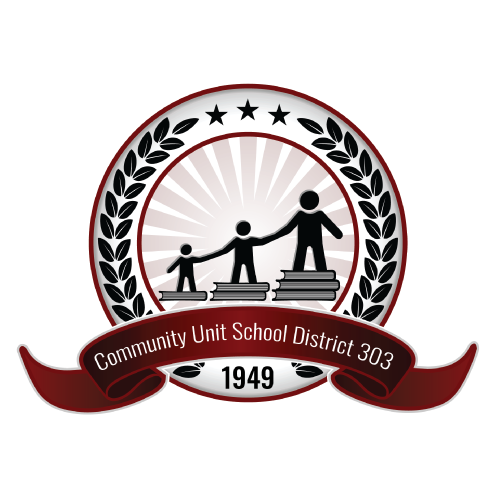Our purpose is to help students develop the ability to make informed and reasoned decisions for the public good as citizens of a culturally diverse, democratic society in an interdependent world.
Conceptual Framework
Students of D303 live in a democratic society that is globally connected, culturally diverse, constantly changing, technologically driven, and information rich. Therefore, they must be civically engaged, creative, critical thinkers who are globally and culturally aware, financially literate, able to work in diverse groups, and solve complex problems in order to achieve college, career, and civic-life readiness.
Toward this end, Social Science learning is simultaneously focused within two complementary categories: engagement with key disciplinary concepts and development of inquiry skills. Through their studies, students will explore questions which serve as the foundation for the Social Science disciplines, and engage them with issues facing our community, state, nation, and world. By exploring multiple perspectives (historical and contemporary, local and global), they will emerge with the knowledge, skills, attitudes, dispositions, and behaviors necessary to be informed and active citizens.
Social Studies Topics
Kindergarten - 2nd Grade
In the primary grades, students learn about getting along, why we need rules, making good choices, respecting property and solving problems. They learn about family systems, the interdependence of community, citizenship, civic responsibility and economic needs connected to the wants of families.
3rd Grade
Map skills are deepened with calculating distances, locating places in the world and community comparisons. They study migration routes and the Native Americans settling along these routes in North America. In addition, they study the Native American cultural regions. They learn about immigration to the United States and the events and issues of the topic. Global trade and its effects on our local communities are studied.
4th Grade
Using the perspective of geographers, historians, economists, political scientists and sociologists, students study the regions of the U.S. They learn research skills to compare/contrast farm life in the 1800s with today. They study key sites, early settlements, population density, climate, elevation and natural resources. They learn about water usage and how river water is shared and conserved.
5th Grade
Fifth grade is an overview of American History including exploration, the early settlements, comparison of different colonies and the changing relationships with England. The study moves through the causes of the Revolutionary War, the Declaration of Independence and the formation of a new government. The Constitution and the Bill of Rights are introduced. The topic of Western Expansion and peoples of the west are also taught. Students learn of the causes of the Civil War, combat conditions and the issues of slavery.
6th Grade
Sixth Grade is a year-long study of the major global patterns of geography, government, economics, and culture, through both a historic and contemporary lens.
7th Grade
Seventh grade is the first year of a two year study of United States' history, government, geography, and economics. Through inquiry into significant eras and events, students will explore the creation and development of the United States as a nation, from colonization through westward expansion. Seventh grade will include a state-mandated study of the United States and Illinois Constitutions.
8th Grade
Eighth grade is the second year of a two year study of United States' history, government, geography, and economics. Through inquiry into significant eras and events, students will continue to explore the growth and challenges of the United States as a nation, from the civil war through the twentieth-century civil rights movements. Throughout the year, students will consider the question: To what extent is America a land of opportunity for all?

